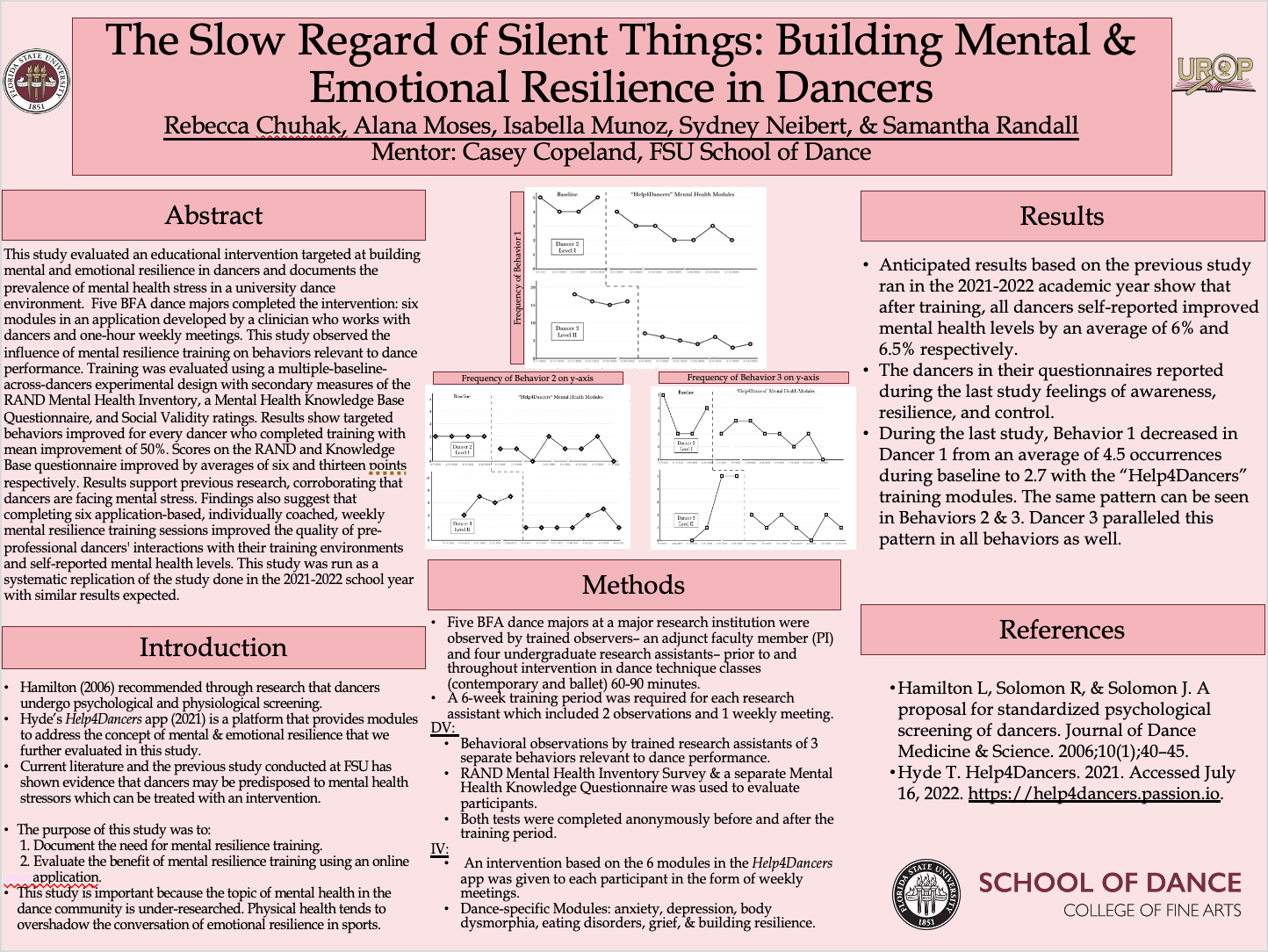Research Symposium
23rd annual Undergraduate Research Symposium, April 6, 2023
Samantha Randall Poster Session 2: 1:30 pm - 2:30 pm/ Poster #4

BIO
I am a first-year Presidential Scholar at Florida State University from New York City. I am majoring in Behavioral Neuroscience and have research interests in mental health, psychology, and the connections between dance and science, whether physical or mental. On campus, I am involved with University Ambassadors, Forward FSU, Student Senate, and the Presidential Scholars Outreach Board. I am unsure what in particular I want to do with my career path, but I hope to attain a master's degree in Neuroscience and devote my life to both science and the arts.
The Slow Regard of Silent Things: Building Mental and Emotional Resilience for Dancers
Authors: Samantha Randall, Casey CopelanStudent Major: Behavioral Neuroscience
Mentor: Casey Copelan
Mentor's Department: Dance Mentor's College: Fine Arts Co-Presenters: Rebecca Chuhak, Alana Moses, Isabella Munoz, Sydney Neibert
Abstract
This study evaluated an educational intervention targeted at building mental and emotional resilience in dancers and documents the prevalence of mental health stress in a university dance environment. Five BFA dance majors completed the intervention: six modules in an application developed by a clinician who works with dancers and one-hour weekly meetings. This study observed the influence of mental resilience training on behaviors relevant to dance performance. Training was evaluated using a multiple-baseline-across-dancers experimental design with secondary measures of the RAND Mental Health Inventory, a Mental Health Knowledge Base Questionnaire, and Social Validity ratings. Results show targeted behaviors improved for every dancer who completed training with mean improvement of 50%. Scores on the RAND and Knowledge Base questionnaire improved by averages of six and thirteen points respectively. Results support previous research, corroborating that dancers are facing mental stress. Findings also suggest that completing six application-based, individually coached, weekly mental resilience training sessions improved the quality of pre-professional dancers' interactions with their training environments and self-reported mental health levels. This study was run as a systematic replication of the study done in the 2021-2022 school year with similar results expected.
Keywords: Dance, Mental Health, Emotional Resilience

